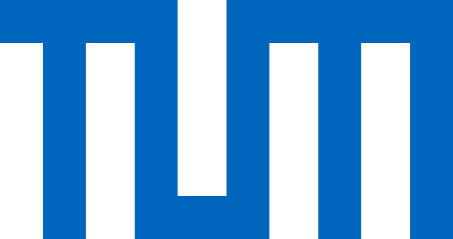Expert Laboratory Legionella – Rapid quantification and subtyping of L. pneumophila in evaporative cooling systems
May 23, 2023
Expert Laboratory Legionella – Rapid quantification and subtyping of L. pneumophila
in evaporative cooling systems
May 23, 2023
About the webinar
Join us for an informative webinar on the importance of monitoring Legionella in industrial cooling towers. In this session, Philipp Streich M. Sc., member of the group Bioanalytics and Microanalytical Systems at the Institute of Water Chemistry at Technical University of Munich, will discuss the importance of rapid and quantitative results in preventing Legionella outbreaks and improving risk assessment using the real-life case of monitoring water quality with rqmicro.COUNT and LegioTyper in several evaporative cooling system samples.
Philipp and the team from the Technical University of Munich, together with other project partners, worked on the WIPANO - LegioRapid - project, which aims to evaluate rapid tests for the determination of Legionella in evaporative cooling systems, wet separators and other systems that use process water. The adoption of new methods is essential as todays' standard methods relies on the highly variable, slow and energy-consuming cultivation of bacterial cells. Once the project is completed, accredited laboratories will be able to use these rapid tests to detect Legionella contamination in the event of an outbreak or as part of the VDI guideline 4250-2.
Don't miss this valuable opportunity to learn about the latest developments in Legionella monitoring and rapid test standardisation.
Fill the form to sign up for the webinar!
Speaker



Philipp Streich, M. Sc.
Member of the Group Bioanalytics and Microanalytical Systems at the Institute of Water Chemistry at Technical University of Munich
Philipp Streich studied chemistry at the Technical University of Munich. He did his master thesis by developing a chip-based detection system for rapid quantification of antibiotic resistance genes in Klebsiella pneumonia and Escherichia coli via molecular fusion at the group of PD Dr. Michael Seidel, Bioanalytics and Microanalytical Systems, belonging to the Institute of Water Chemistry.
In 2020 he joined Michael’s group for his PhD. Now he is working on the research for culture independent analytical methods for the detection of Legionella in evaporative cooling system.
WATCH ON DEMAND
Request a recorded version of the webinar.
Request a recorded version of the webinar.
About the webinar
Join us for an informative webinar on the importance of monitoring Legionella in industrial cooling towers. In this session, Philipp Streich M. Sc., member of the group Bioanalytics and Microanalytical Systems at the Institute of Water Chemistry at Technical University of Munich, will discuss the importance of rapid and quantitative results in preventing Legionella outbreaks and improving risk assessment using the real-life case of monitoring water quality with rqmicro.COUNT and LegioTyper in several evaporative cooling system samples.
Philipp and the team from the Technical University of Munich, together with other project partners, worked on the WIPANO - LegioRapid - project, which aims to evaluate rapid tests for the determination of Legionella in evaporative cooling systems, wet separators and other systems that use process water. The adoption of new methods is essential as todays' standard methods relies on the highly variable, slow and energy-consuming cultivation of bacterial cells. Once the project is completed, accredited laboratories will be able to use these rapid tests to detect Legionella contamination in the event of an outbreak or as part of the VDI guideline 4250-2.
Don't miss this valuable opportunity to learn about the latest developments in Legionella monitoring and rapid test standardisation.
Fill the form to sign up for the webinar!
Speaker



Philipp Streich, M. Sc.
Member of the Group Bioanalytics and Microanalytical Systems at the Institute of Water Chemistry at Technical University of Munich
Philipp Streich studied chemistry at the Technical University of Munich. He did his master thesis by developing a chip-based detection system for rapid quantification of antibiotic resistance genes in Klebsiella pneumonia and Escherichia coli via molecular fusion at the group of PD Dr. Michael Seidel, Bioanalytics and Microanalytical Systems, belonging to the Institute of Water Chemistry.
In 2020 he joined Michael’s group for his PhD. Now he is working on the research for culture independent analytical methods for the detection of Legionella in evaporative cooling system.